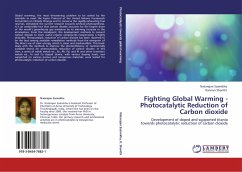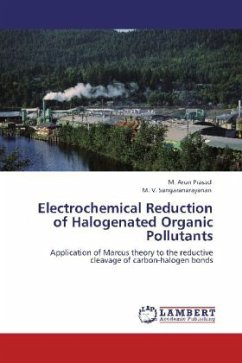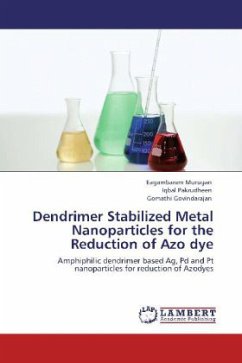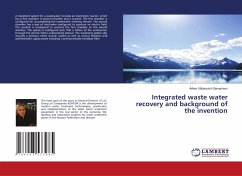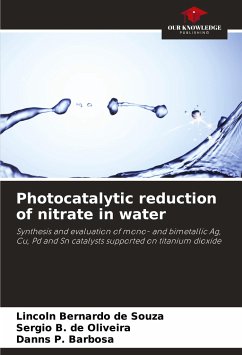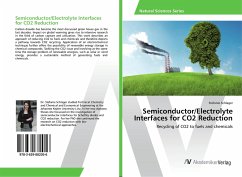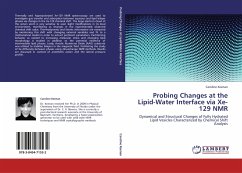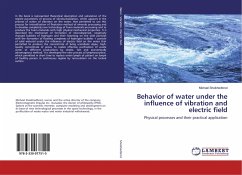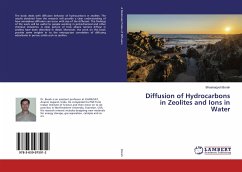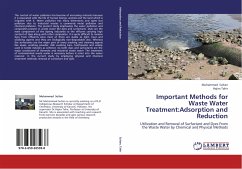
Important Methods for Waste Water Treatment:Adsorption and Reduction
Utilization and Removal of Surfactant and Dyes From the Waste Water by Chemical and Physical Methods
Versandkostenfrei!
Versandfertig in 6-10 Tagen
52,99 €
inkl. MwSt.

PAYBACK Punkte
26 °P sammeln!
The control of water pollution has become of increasing interests because it is associated with the life of human beings, animals and the land which is irrigated with it. Water pollution has many dimensions and types but pollution due to industrial wastes is commonly metal pollution and chemical pollution. The present study emphasizes the water pollution and composites present in waste water like dyes and surfactants. Dyes are the main component of the dyeing industries so the effluent carrying high content of dyes along with other composites. It is quite difficult to remove dyes from effluent...
The control of water pollution has become of increasing interests because it is associated with the life of human beings, animals and the land which is irrigated with it. Water pollution has many dimensions and types but pollution due to industrial wastes is commonly metal pollution and chemical pollution. The present study emphasizes the water pollution and composites present in waste water like dyes and surfactants. Dyes are the main component of the dyeing industries so the effluent carrying high content of dyes along with other composites. It is quite difficult to remove dyes from effluents since most of them are stable to light, heat and oxidizing agents and they are biologically non-degradable also. Whereas the surfactants are the major part of every washing and cleaning agents like soaps, washing powder, dish washing bars, toothpastes and widely used in textile industry as softener. So both dyes and surfactants are the major constituent of domestic and industrial waste water. The treatment of contaminated waste water is necessary before it enter into the water reservoir. In the current study by employing physical and chemical treatment methods removal of surfactant and dyes.



